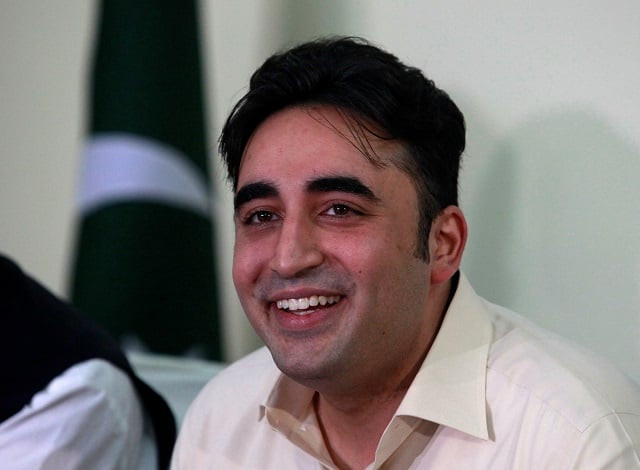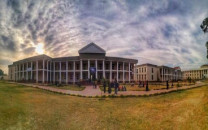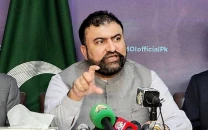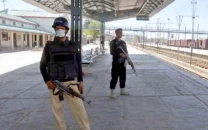Bilawal offers to bridge US-China divide
.

Hoping to revive Pakistan's role in facilitating diplomatic relations between China and the United States over 50 years ago, former foreign minister Bilawal Bhutto one again offered Washington Pakistan's assistance as a bridge-builder with Beijing.
In an interview with Deutsche Welle on the sidelines of a security conference in Munich, Germany, the Pakistan Peoples Party (PPP) chairman said that Pakistan pursued a policy of narrowing gap between nations rather than widening them.
Bilawal stressed that despite existing differences, Pakistan also wanted good ties with India. However, he warned that the US support for India as a rival to China could lead to an arms race in the region. Citing past successes, Bilawal stressed the need for political consensus to resolve ongoing issues.
"If you want to make us part of any camp, we would like to see ourselves as conciliators and mediators. Pakistan wants to bridge the gap rather than widen the divide," he said. "President Trump is a 'dealmaker' and under his leadership, "Pakistan can play a role in dealing with regional challenges," he added.
Bilawal highlighted Pakistan's strong relations with China, and Islamabad's historic role in initiating dialogue between Beijing and Washington in the early 1970s. Amid rising global tensions, he added, "Pakistan can play a role in bridging the gap between the US and China."
During Trump's second presidential term, US-China tensions escalated significantly, primarily due to trade disputes, allegations of currency manipulation, and concerns over national security. Trump initiated a trade war by imposing tariffs on Chinese goods, to which China responded with retaliatory tariffs.
In 1971, Pakistan facilitated secret communication between the United States and China. Then president Yahya Khan acted as a messenger between US President Richard Nixon and Chinese ruler Zhou Enlai. Pakistan arranged a secret visit to Beijing by then US national security adviser Henry Kissinger.
Kissinger's visit paved the way for US President Nixon's crucial visit to China in 1972 and the two countries established diplomatic relations. "We played that role in the past by establishing diplomatic contacts between the US and China," he said.
"The [current] pace of that [US-China] competitiveness has very palpable effects all across the world. He added: "With China-US conflict and with US attempts to build up India as a counterweight to China does affect the balance of power in the region."
Bilawal attributed Pakistan's current challenges to the US withdrawal from Afghanistan. "This led to the rise of groups like Tehreek-e-Taliban Pakistan and the Islamic State (IS). "Before the fall of Kabul, we were more successful in dismantling and taking on these militant outfits within Pakistan."



















COMMENTS
Comments are moderated and generally will be posted if they are on-topic and not abusive.
For more information, please see our Comments FAQ